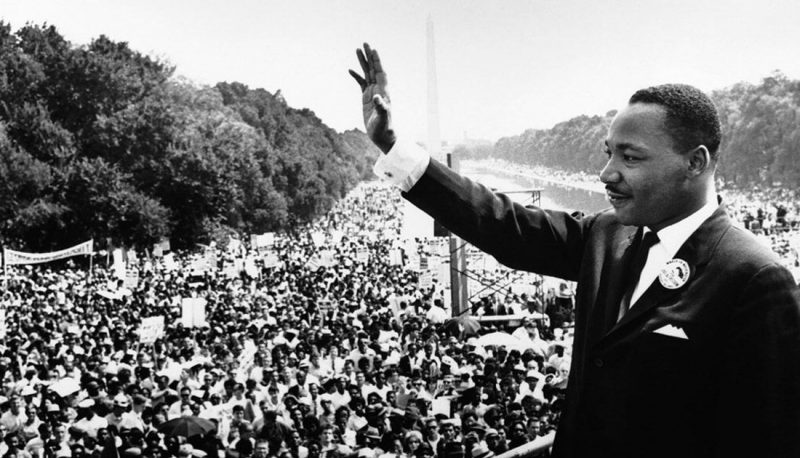This post originally appeared on Medium.
It was fifty years ago this week when Dr. Martin Luther King, Jr. was assassinated at just 39 years old, cutting short the life of one of the most visible and important civil rights leaders in our country’s history.
Though our history books don’t always frame it this way, Dr. King was a youth leader, stepping into the national spotlight and organizing powerful campaigns from a young age. He led the Montgomery Bus Boycott, sparked by the activism of Rosa Parks, when he was just 26 years old. At 28 he was making national speeches, and at 29 he was meeting with the president of the United States to advocate for social justice. Joining him in this push for change were other young leaders like John Lewis, Julian Bond, and Diane Nash from the Student Nonviolent Coordinating Committee (SNCC), the only national civil rights group at the time directed by student activists and other young people. It was a movement.
Dr. King was part of a strong current in American history of young people driving urgently needed change—just like we are doing now.
As a young black woman leading one of the largest national networks of young progressive activists in the U.S., I see every day how young people are still showing the country the way forward. Young people are still our moral compass, with the strength and determination to spearhead the massive change we need.
In the face of a rise in white supremacist groups, a Trump-created crisis for young immigrants, and an epidemic of young people being shot in their classrooms with semiautomatic rifles or by the police in their own backyard, young leaders understand what Dr. King called the “fierce urgency of now.” And we are rising to face every challenge thrown at us.
When white supremacists marched on our cities, young people risked and gave their lives in counter-protests against the hate that threatens to tear our nation apart. When Trump rescinded DACA (Deferred Action for Childhood Arrivals), an Obama-era program that shields young undocumented immigrants from deportation, millennial Dreamers led sit-ins in Congress, risked arrest, and even spent days in jail to push for action. And in the face of gun violence and police brutality, young people are organizing a powerful, multiracial reform movement unlike anything we’ve seen before.
What we saw with the March for Our Lives is the national impact that can be made when young people’s ideas and vision for change is supported financially. If we really want to see the country we desire, it’s time to put our money where our progress is—it’s time to invest in this new, diverse generation of progressive leaders who are already working to make the free and just country we all want a reality.
This means investing not only in the handful of young people featured on the national news, but in the tens of thousands of young people doing the tiring, unglamorous work of local grassroots organizing. While youth leaders have brought a vital infusion of ideas, energy and passion for the progress we want to see in our nation, we are largely doing it without the resources that our conservative counterparts have.
If I know one thing for sure, it’s that the answer to our society’s problems is not, and has never been, to rely on the establishment. Like in Dr. King’s time, trailblazing young people—especially young people of color and other marginalized youth—are showing us all the way. We are ready for this moment. We are organizing because our lives depend on it.

